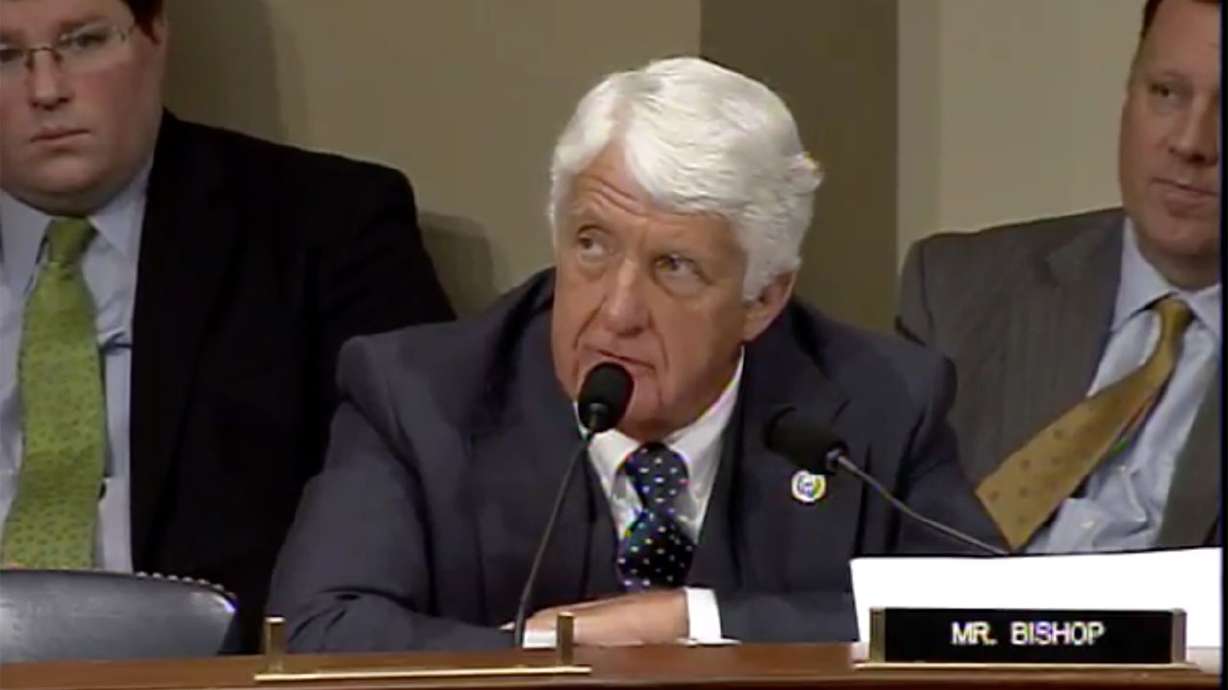Estimated read time: 4-5 minutes
This archived news story is available only for your personal, non-commercial use. Information in the story may be outdated or superseded by additional information. Reading or replaying the story in its archived form does not constitute a republication of the story.
SALT LAKE CITY — Controversial monument designations made by the last U.S. president were debated Wednesday in a congressional subcommittee, but this time the glare focused on the creation of large marine monuments blasted by critics as federal overreach.
The arguments against such designations echo many made in the case of Bears Ears and other monuments around the West: they usurp state input, run afoul of locally driven solutions for protection, and upend industries that contribute to federal and local economies.
"There was no transparency — none," said Brian Hallman, executive director of the American Tunaboat Association. "We woke up one morning and found out this was already announced."
Hallman was detailing impacts of former President Barack Obama's 2014 expansion of the Pacific Remote Islands National Monument from 86,888 square miles to roughly 490,000 square miles, at the time the largest expansion in U.S. history.
The designation, he said, resulted in the closures of traditional and productive U.S. fishing areas without consultation with U.S. fishing industries, territories or states in an act that bypassed domestic laws governing fish management and international treaties.
"It completely usurps these long-standing and legally recognized practices and is not based on established, accepted science," he said.
Hallman testified before the House Natural Resources' Subcommittee on Water, Power and Oceans less than a week after Rep. Rob Bishop, R-Utah, penned a letter to President Donald Trump asking that all fishing prohibitions be removed from marine monuments. Bishop is chairman of the House Natural Resources Committee.
A coalition of New England fishermen organizations has also filed suit over the September 2016 creation of the Northeast Canyons and Seamounts National Monument 130 miles off the coast of Cape Cod.
Rep. Raul Grijalva, the House Natural Resources ranking committee member, said Wednesday's hearing represented another GOP attack on the Antiquities Act.
"Today's hearing is not about helping fishermen catch fish. If it was, we would be talking about the science that proves climate change is jeopardizing our fisheries," said Grijalva, D-Arizona. "This hearing is part of campaign to score political points by attacking the Antiquities Act."
Griljalva accused Republicans of being "fixated" on undermining the law, even though it has been used to protect spectacular places like the Grand Canyon in his home state.
American Tunabout Association Brian Hallman: "I woke up one morning & found out the monument was already announced by [Obama] White House"
— Natural Resources (@NatResources) March 15, 2017
"Chairman Bishop has asked President Trump to allow industrial fishing in all marine monuments and to abolish the newly designated Bears Ears Monument in Utah," he added.
The December designation of the 1.35 million-acre Bears Ears National Monument in San Juan County has set off a firestorm of opposition by Utah's GOP leaders and spurred an intense campaign by monument supporters, including the Native American-tribal led Bears Ears Inter-Tribal Coalition.
Both sides have alternately asked for the monument's repeal or its continued designation, inviting newly confirmed Interior Secretary Ryan Zinke to come to Utah to hear their case.
Related
At the subcommittee hearing, the debate on marine monuments followed similar themes inherent in the Bears Ears designation: protection, preservation, access and maintaining multiple use, including industry interests.
"We should be embracing marine monuments not opposing them," said Rep. Gregario Sablan, a Democrat representing the Northern Mariana Islands.
John Bruno, a professor of biology at the University of North Carolina at Chapel Hill, said marine monuments ensure the continuance of biological diversity and protect critical aquatic species.
But Rep. Don Young, R-Alaska, said he doesn't believe the Antiquities Act should ever had been applied to oceans, that such a designation goes beyond the language of the law that references only lands.
"This is an attempt very frankly, to again control the sea beds without scientific information, without consultation of people directly affected," he said, referencing the Pacific Remote Island National Monument expansion.
"To my knowledge no one talked to any of the states, no one talked to any of the people in that area. It was done by the special interest groups that said no more of anything unless it suits our goal, and the goal is to have nothing. No oil exploration, no fishing commercially and little fishing sportswise unless it is approved by the secretary. That is our role."









